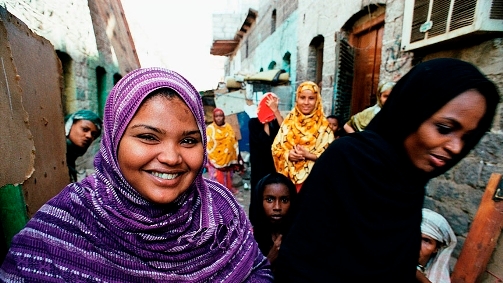Yemen presents a number of development challenges, not least of which are its rugged terrain and highly dispersed and remote communities. Many of these communities lack basic infrastructure, and have limited access to social services. This often means that the daily effort to acquire basic necessities crowds out all other activities. It can have a significant impact on human development. For instance, in remote communities without a regular supply of water, young girls must spend as much as to four to seven hours of each day fetching water. Fulfilling this traditional responsibility can leave them little time for critical activities such as school.
The recent political crisis was driven in large part by widespread frustration with social and economic exclusion. In remote, rural communities these conditions can be starkly apparent. The board of the World Bank recently approved the Labor Intensive Public Works Project which promises to address specific needs such as infrastructure and employment, while promoting the longer term goal of better engagement between citizens and their government. The project will be managed by World Bank Senior Operations Officer, Ali Khamis. As he is from Yemen, Ali has a unique grasp of the country’s geographic and developmental challenges, and both a personal and professional commitment to tackling them.
What are the goals of the Labor Intensive Public Works Project, and who will it benefit?
Ali Khamis (AK), Senior Operations Officer, Urban Development Sector: The project’s objectives are to provide needed infrastructure to improve access to basic public services, and to create short term employment. As the project will require a high degree of cooperation between the government and local communities, it will have the added effect of strengthening the longer term social contract between the Yemeni state and its citizens. Direct beneficiaries of the project will be the people that live in dispersed, sparsely populated, rural settlements, where 80% of the investments will be made, as well as poor communities in urban areas.

